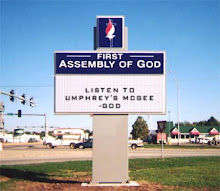Have you noticed the trend of making new things look old? “Distressed” jeans and vintage clothing, furniture with purposefully places scratches and dings, buildings with old brick and cultivated ivy; for some reason, old is new.
This trend doesn’t only apply to the aforementioned products, but it can also be found in the guitar world. Recently, there has been a trend among “do-it-yourself” guitar luthiers to “relic” their guitars. Brand new guitars are taken right to the belt sander and distressed in certain areas, mostly the body and neck. They sand the paint off right down to the wooden core and complete it with scratches and dings, oxidized hardware and even faux cigarette burns on the headstock.
Playing off this DIY trend, Fender guitars has just released its “Road-Worn” series of guitars and basses. The line consists of a telecaster and Stratocaster guitar model and a precision and jazz bass models. While I am pretty skeptical about this “relic” trend, I needed to give it a try before I could fully form any opinions.
I walked into my local shop to find a huge display of Road-Worn Fenders staring right at me as soon as I walked in the door. I had to physically step around the display to even enter the store.
I picked up the relic’d black Stratocaster with a worn maple fret board that caught my eye. I was instantly surprised when I picked it up, but not in a good way. The price tag read “$995.00.” Then I looked at the headstock, near the serial number to see where it was manufactured. Fender has three versions of its instruments: ones manufactured in America, ones in Japan and ones in Mexico. The American-made Fenders are considered the best quality and run at a price tag of around $1,000. Japanese Fenders come in second, and Mexicans in last. Mexican Fenders have the reputation for being the economical option for someone who wants to buy a real Fender, and usually are priced no more than $450-$600.
This guitar was Mexican made. There was an additional $600-$400 just for them making my guitar look like it had been played for 30 years before I buy it.
Price aside, playability is what really matters in a guitar.
I sat down with the black strat and plugged it into a Twin Reverb re-issue; a classic Fender amp. When I began to play it, I was surprised again, but this time rather pleasantly.
Instantly. The neck felt like butter. Since all the lacquer was worn off, the bare wood provided for smooth, seamless movements up and down the fret board. A perfect balance between a thin telecaster-like neck and a chunky, 50s style neck, I am surprised to say that it was one of the best necks I have ever played. The worn down neck truly did make it seem like the guitar was “broken in.”
The electronics weren’t lacking either. Come to find out, the Road-Worn series comes loaded with American electronics and Fender’s Tex-Mex pickups, which provide a nice, quacky Stevie Ray Vaughn sound. This strat truly did feel and sound like it was from the 50s, like a real strat should.
The body itself was fine. Nothing really stood out. It had a fairly resonant body not the best I have played. It seemed to be a three or more piece body, which can kill the resonance and sustain a bit, but it wasn’t terrible. The worn paint at the armrest was nice. It didn’t feel sticky like many guitars can, but it also wasn’t really noticeable unless I thought about it. The pick guard and rest of the white plastic was yellowed to look older, and the hardware all had faux rust on it. It was a little weird to look at, but it didn’t affect the playability at all.
After a while of playing, I realized that Fender had just about sold me on their new series. While I still don’t like this new trend of old, no one can argue that the guitars don’t play well. If Fender would lower their price to the range of $700-$750, they would sell many more of these. I feel like the only thing holding these back right now is the price. So, check one out, and if you have a grand you want to spend, this isn’t a bad place to drop it... although there are better places.

0 comments:
Post a Comment